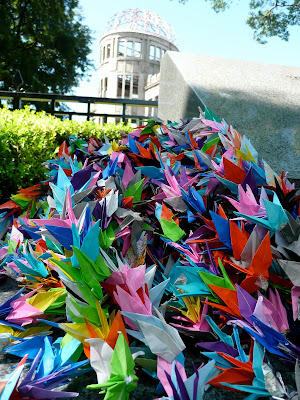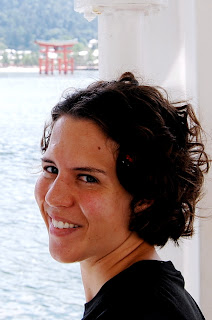 Well, this is it! Joe and I are flying out of Japan tomorrow morning, so this will be my final blog post. A lot of mixed feelings right now — sadness that this journey is coming to an end, excitement about moving back, being near family and resuming a life where certain everyday things are less of a challenge.
Well, this is it! Joe and I are flying out of Japan tomorrow morning, so this will be my final blog post. A lot of mixed feelings right now — sadness that this journey is coming to an end, excitement about moving back, being near family and resuming a life where certain everyday things are less of a challenge.We've had an incredible three years living and teaching in Japan. During this time I've done so many things I never dreamed I'd do. Standing in front of my first class of Japanese teenagers, I wasn't sure this would turn out so well, but I adapted to teaching and came to appreciate its many challenges. I've studied Japanese and learned it well enough to express what I want to say, albeit simply. I've been to the top of the world — watching the sun rise from the top of Mt. Fuji — to the bottom of the sea — swimming with sea turtles in Okinawa. It still blows my mind to even think about it. And besides traveling throughout Japan, we also spread our wings and went abroad, to Thailand, South Korea, China, Hong Kong and Macau. It's been an exhilarating and mind opening three years, a true adventure. When I came to Japan, I had a precious opportunity to be immersed in Japanese culture. But I also had the chance to see my own country and culture in an entirely new light, and now I'm coming away from this experience with a whole new perspective on America — its wonders as well as its weaknesses. Now, just as I once wished I could combine the best aspects of my ex-boyfriends into the perfect prince charming, I find myself wishing I could somehow combine the best of both these lands into a sort of paradise.
The Japanese have a saying, "Sumeba miyako," which literally translates to "If you live there, it's the capital" — the capital being the best place to be. So wherever you decide to settle, that place becomes home. After three years calling Hiroshima my home, I think this certainly applies. There is much I'll miss about Hiroshima and Japan. Tomorrow morning I'll be leaving a piece of my heart in Hiroshima.
Thanks to all of you who followed me on this journey. I've enjoyed sharing it with you.
さようなら日本、また会う日まで —> Sayounara Japan, until we meet again.





















